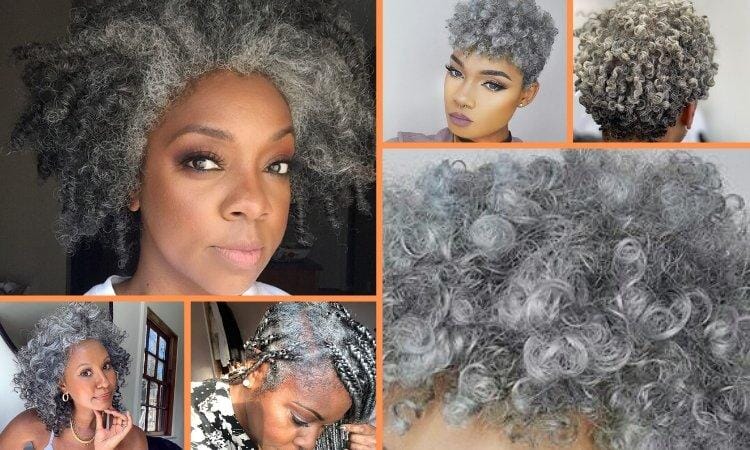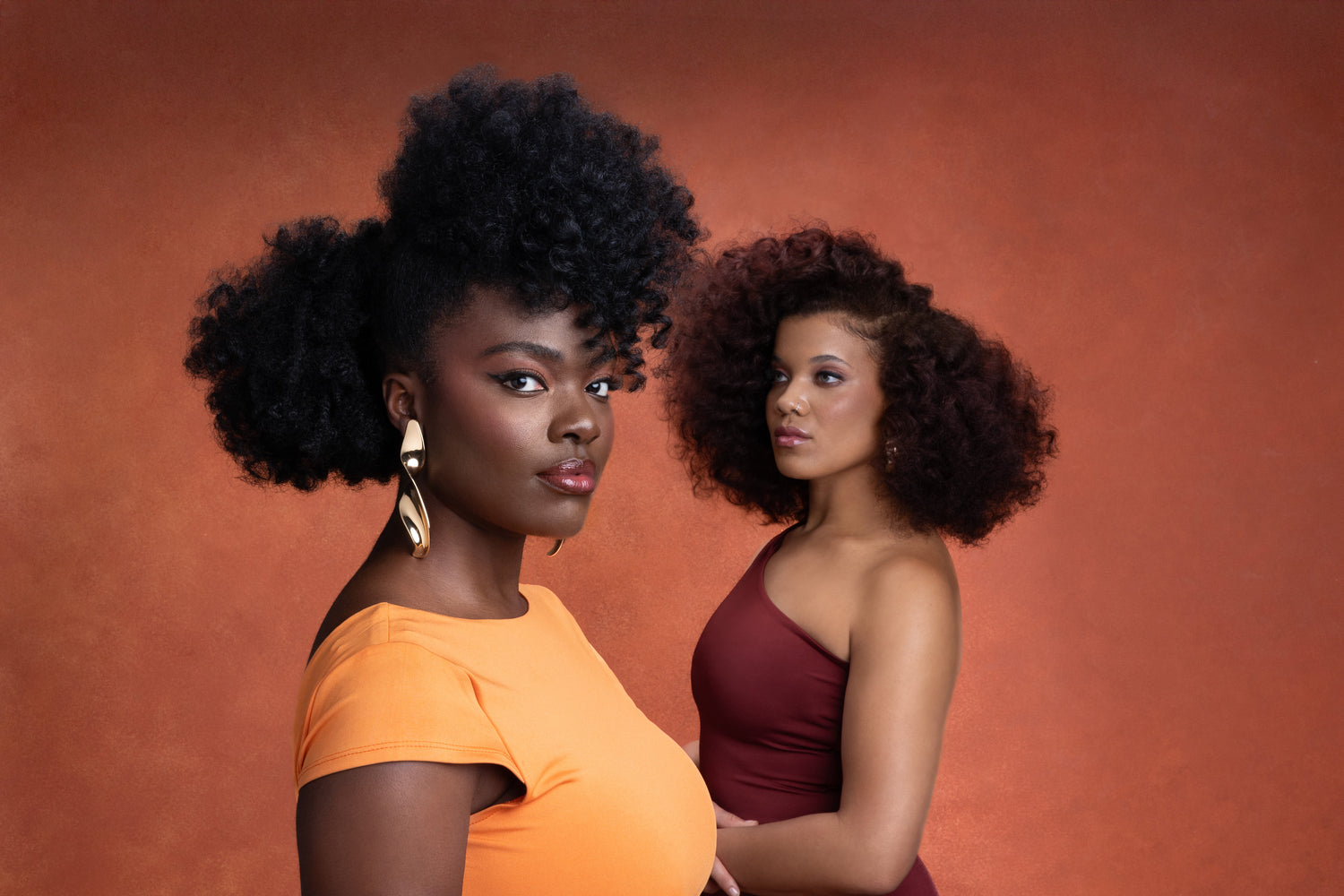Some of us pull grey hairs out the moment we spot them, whereas others dash down to the store to find the appropriate hair dye.
But the fact is that the process of going grey is a natural one and it usually comes with age. That said, there’s no guarantee of when it might happen.
Of course, it’s highly unlikely that your hair will turn grey overnight. Conversely, you could go the majority of your life without getting a single one!
What’s important to understand, however, is what grey hairs are and why we get them. Following that, we’ll provide you with some top tips on maintaining your hair colour for longer.
What is Grey Hair?
Grey hair is a natural consequence of the pigment cells in our hair follicles dying. These cells are responsible for the production of a chemical called melanin, which is what gives our hair its colour.
As we get older, the pigment cells in our hair follicles die. When there are fewer of them in a hair follicle, it gradually loses colour and becomes harder to maintain.
Does Hair Turn Grey or Go Grey?
Now, this is a question that’s asked often. Hair doesn’t 'turn' grey. It grows grey. If you’ve been following so far, you’ll know now that your hair’s colour is determined by the number of pigment cells in your hair’s follicles. As those pigment cells die (as you age) it becomes harder to produce your hair’s natural colour, meaning new hairs are increasingly likely to be grey.
Why Do Some People Go Grey Sooner Than Others?
Now, you might be wondering: “Why do some people go grey sooner than others?” The answer: genes.
Assuming we’re the picture of health, most of us will go grey around the same time as our parents or grandparents did. There are, of course, exceptions to this (recessed genes, luck) but generally, these are the conditions. Ethnicity is also a factor: in general, Caucasians tend to go grey earlier than Asians or Africans.

@rajeeyahsweetnaturals
Stress is another variable to consider. According to the National Institutes of Health, “stress can cause hair to grey prematurely by affecting the stem cells that are responsible for regenerating hair pigment.”
Finally, there may be underlying health conditions — diabetes, for example — that contribute to premature greying, or the person may be a smoker.
Can You Stop Hair From Going Grey?
Not exactly.
Given that grey hair is part of the ageing process — and completely normal — there’s no easy cure or prevention, but there are plenty of things you can do to ensure your hair is strong, healthy and has the best chance of 'keeping' its colour for a longer period of time.
For example, lifestyle changes like having more vitamins, not smoking and taking care of your hair can all have a positive impact on your hair’s quality and its colour’s longevity. The idea is to feed those pigment cells in your hair as many nutrients as they need to continue to produce melanin for longer.
We advise against pulling grey hairs out. As you can damage the hair shaft and that in turn can lead to hair loss.

@silverismynewnormal / @hairstylingbykurian
Take More Vitamins
Vitamin deficiencies can have a tremendous impact on your overall health, not just your hair.
That said, we know that deficiencies of vitamin B6, B9 (folic acid) B12, D and Zinc can affect your hair’s ability to retain its colour. So, how do you get each of these vitamins into your diet? Well, you could take multivitamins — but that requires you remember. Instead, you could just make small changes to your diet.
For B6: can be found in fish, poultry, potatoes, and non-citrus fruits.
For B9: eat more beans, asparagus, leafy greens and citrus acids.
For B12: can be found in meat, dairy products and fortified cereals.
For Vitamin D: try to get out in the sun and have more eggs and fatty fish.
For Zinc: can be found in beans, whole grains and red meat.
Having a variety of the above will not only improve your hair’s health (and therefore its ability to retain its colour for longer), it’ll also improve your diet.
Don’t Smoke/Try to Quit Smoking
Smoking is consistently linked to premature greying; according to the study Smokers’ Hair: Does Smoking Cause Premature Graying?, there is a “significant relation between onset of grey hair before the age of 30 and cigarette smoking”. In fact, smokers were 2.5 times more likely to experience premature greying before the age of 30 than non-smokers!
Look After Your Scalp
A happy scalp, typically means good things for your hair. Massaging your scalp with natural oils will help to keep your hair nourished and strong.
Our natural scalp oil, Soothe was designed to combat dryness and promote healthy hair growth. Apply to your scalp immediately after washing and a couple of times throughout the week to keep your scalp happy.
How Can You Look After Grey Hair?
If you’re already grey and wondering how best to look after your hair, don’t worry, we’ve got some great tips for you.
Use the Right Products

You want to build and retain moisture in dry, grey hair wherever possible. A good hair care routine will ensure that your hair continues to get the nutrients it needs to stay healthy, soft and vibrant — even when grey. For those with afro hair, we recommend taking a look at our hair care guide.
Avoid harsh shampoos and other chemical-based products. Instead, opt for something natural like Afrocenchix (our shampoo, Swish is sulphate-free and gently cleanses without stripping your hair of moisture) .
Protect Your Hair
Grey hair is substantially weaker than normal hair, so you need to protect it when and where you can. Use a satin lined bonnet at night time to help your hair retain moisture. And if you’re out in the sun for a while, wear a hat or head wrap — grey hair is much more prone to UV damage.
Turn Down the Heat
Heat dries out your hair and dry hair leads to breakage and damage. When washing your hair, try to use warm water. Also, try to avoid using heat when drying your hair or styling your hair as this can cause heat damage.
Going grey happens to all of us — but it’s nothing you can’t manage and hopefully, you'll have a better understanding of what it means to go grey and understand how you can keep your hair at its best.
Other Instagram credits: @jjmua / thetennillelife_
More Articles:
How to Effectively Moisturise Afro Hair

